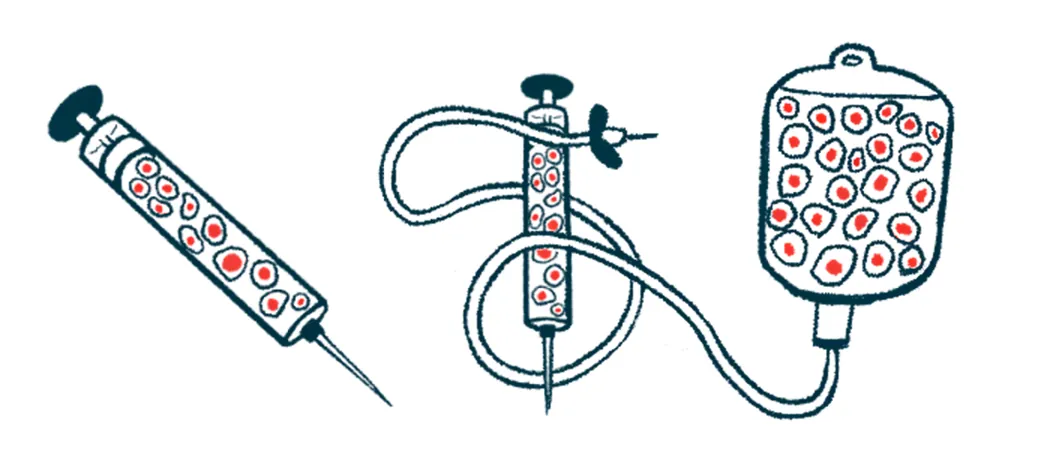
Breakthrough Study Reveals Stem Cell Transplants Could Transform Lives of MS Patients
2025-07-08
Author: Jacob
Game-Changing Findings for MS Treatment!
A groundbreaking study from the U.K. reveals that nearly 66% of multiple sclerosis (MS) patients who underwent stem cell transplants experienced no confirmed disability progression five years later. This promising data shines a light on a potential lifeline for individuals battling this debilitating disease.
Relapsing-Remitting vs. Progressive MS: Hope for All?
The results were particularly encouraging for those with relapsing-remitting MS (RRMS); nearly 70% of these patients maintained their mobility and independence after five years. Even for patients grappling with progressive forms of MS, around 50% avoided worsening disabilities. This raises hope that transformative treatments may be within reach for a wider array of MS sufferers.
Navigating Safety Concerns with Careful Protocols
Despite some reported safety issues—primarily among patients with advanced disease or those given higher chemotherapy doses—the researchers emphasized the significance of personalized patient selection and tailored treatment plans. This careful approach not only maximizes safety but also enhances the chances of long-term success.
Understanding the Procedure: AHSCT Unpacked
Autologous hematopoietic stem cell transplant (aHSCT), often dubbed stem cell therapy, is designed to reboot the immune system, tackling the inflammation that drives MS. It involves harvesting a patient’s stem cells, followed by rigorous chemotherapy to wipe out the malfunctioning immune cells, and ultimately reinfusing the healthy stem cells to foster a properly functioning immune system.
Real-World Efficacy Shows Promise!
This therapy has outperformed standard disease-modifying therapies (DMTs) in achieving a state known as No Evidence of Disease Activity (NEDA), where patients experience no relapses or new lesions. However, the treatment carries risks, leading to concerns about accessibility—a situation the researchers noted restricts many potential candidates from pursuing this potentially life-altering intervention.
A Closer Look at the Data
Analyzing data from 364 MS patients treated in 14 centers across Great Britain from 2002 to 2023, the team discovered valuable insights. The average patient at transplant was 40 years old and faced significant disabilities. Following the transplant, nearly all patients (98%) experienced successful stem cell engraftment, which indicates the transplanted cells took root effectively.
Complications and Outcomes: What Patients Should Know
Early complications were common, affecting 97% of participants, with fluid overload being the most frequent issue. Tragically, 1.4% of patients died within the first 100 days, primarily due to treatment-related complications. Interestingly, outcomes for RRMS patients showed a remarkable 68% free from disability progression five years later—a stark contrast to 46% for those with primary progressive MS (PPMS).
The Road Ahead: Continued Monitoring is Key
Despite some patients facing challenges like new cancers and viral reactivations (especially from the Epstein-Barr virus), the findings underscore that aHSCT remains a potent option for severe MS cases. The researchers stressed that ongoing patient monitoring and meticulous data collection are vital for improving treatment protocols and patient outcomes.
The Future of MS Treatment Looks Bright!
In closing, this study illustrates that aHSCT is not just another treatment but a powerful one-off therapy that can change the course of MS for patients with severe forms of the disease. With continued research and improved safety measures, we could see a significant shift in how we approach MS care.









 Brasil (PT)
Brasil (PT)
 Canada (EN)
Canada (EN)
 Chile (ES)
Chile (ES)
 Česko (CS)
Česko (CS)
 대한민국 (KO)
대한민국 (KO)
 España (ES)
España (ES)
 France (FR)
France (FR)
 Hong Kong (EN)
Hong Kong (EN)
 Italia (IT)
Italia (IT)
 日本 (JA)
日本 (JA)
 Magyarország (HU)
Magyarország (HU)
 Norge (NO)
Norge (NO)
 Polska (PL)
Polska (PL)
 Schweiz (DE)
Schweiz (DE)
 Singapore (EN)
Singapore (EN)
 Sverige (SV)
Sverige (SV)
 Suomi (FI)
Suomi (FI)
 Türkiye (TR)
Türkiye (TR)
 الإمارات العربية المتحدة (AR)
الإمارات العربية المتحدة (AR)